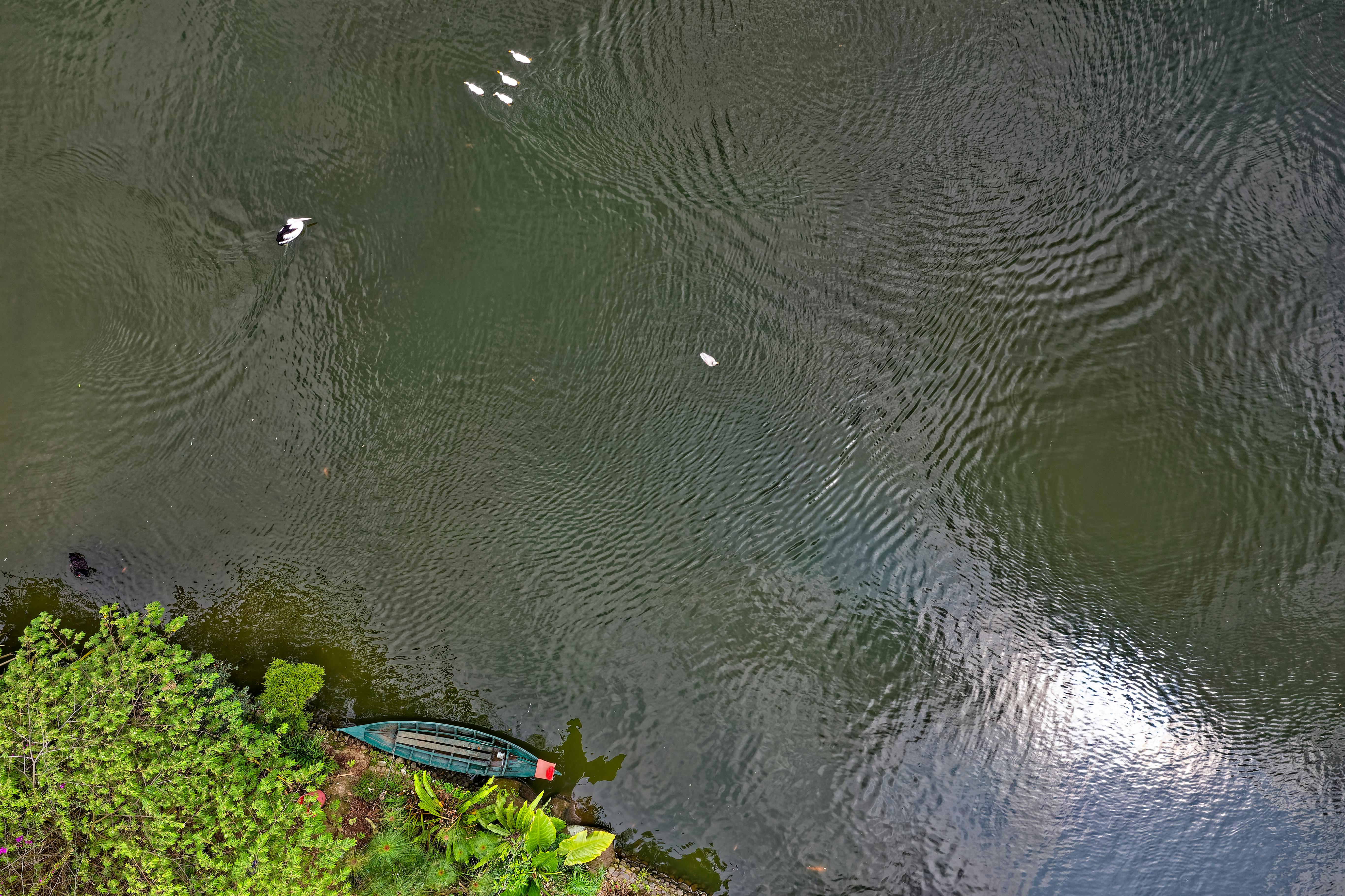Fruit trees provide an abundance of fresh fruits for you to enjoy. However, birds and squirrels can be a nuisance and cause damage to fruit trees. To ensure that your fruit trees are protected and that you get the most out of them, there are some steps you can take to protect them from birds and squirrels. In this article, we will discuss how to protect fruit trees from birds and squirrels so that you can enjoy their bounty.The best way to keep birds away from fruit trees is to cover the trees with a netting or bird-proofing material. The netting should be securely fastened to the trunk and branches of the tree so that birds cannot get in. You can also hang aluminum pie plates, CDs, or other shiny objects from the branches of the tree. If necessary, you can also set up a motion-activated sprinkler system around the tree.
Deterring Squirrels From Fruit Trees
Squirrels can be a nuisance when it comes to your fruit trees. They love the sweet and juicy fruits just as much as you do, and often they’ll get there before you have a chance to harvest them. Luckily, there are some ways you can deter squirrels from getting into your trees and eating all your hard-earned fruits.
One of the best ways to keep squirrels away from your fruit trees is to install physical barriers such as fences or netting around the tree. A fence should be at least four feet tall and made of metal or plastic mesh that is difficult for squirrels to climb or jump over. You can also use bird netting to protect your fruit trees by draping it over the branches of the tree.
Another option is to employ sonic repellents, such as ultrasonic sound waves or motion-activated sprinklers, to scare away squirrels from your fruit trees. Ultrasonic sound waves are high-frequency sounds that most animals cannot hear but will irritate squirrels enough that they will flee the area. Motion-activated sprinklers will startle them with a sudden burst of water when they come near the tree.
You can also use chemical repellents such as pepper spray or oils in order to keep squirrels away from your fruit trees. Spray pepper spray directly onto the trunk and branches of the tree, or make a solution of one part pepper sauce mixed with ten parts water and spray it on the tree every two weeks during peak growing season. Oils such as citronella oil, clove oil, and garlic oil can also help repel squirrels from your fruit trees since they have strong scents that animals don’t like.
Finally, you can try using natural deterrents such as aluminum foil strips hung in strategic places on the tree or dried human hair scattered around it since both create an unpleasant texture for animals like squirrels who rely on their sense of touch while climbing trees. You can also plant some herbs like mint, rosemary, garlic chives or lavender around your fruit trees since these plants have strong scents that are unappealing to animals like squirrels.
By implementing these strategies, you should be able to keep pesky critters away from your precious fruit trees so you can enjoy all their delicious produce!
Tips for Protecting Fruit Trees from Birds and Squirrels
Protecting your fruit trees from birds and squirrels is essential for ensuring that you get a healthy yield of fruits. While it can be difficult to completely stop these pests from raiding your garden, there are several steps you can take to minimize their damage and keep your trees safe. Here are some tips for protecting fruit trees from birds and squirrels:
1. Install bird netting over the tree: Bird netting is an effective way to keep birds away from the tree’s fruits. It should be installed when the fruits start to ripen, and removed once they have been harvested.
2. Place bird feeders away from the tree: Birds will often flock to feeders, so make sure that they are located in a spot where they won’t be tempted to snack on your fruits.
3. Prune branches regularly: Pruning branches will keep them out of reach of both birds and squirrels. Make sure to remove any thin or weak branches that could easily be broken off by pests.
4. Install fences or barriers around the tree: Fences or barriers can help keep out large numbers of birds or squirrels that may try to raid your tree’s fruits. Make sure that the fence is high enough so that it can’t be easily scaled by animals, and check it regularly to ensure its integrity.
5. Use repellents or deterrents: Repellents such as taste-aversion sprays are designed to deter animals from eating plants or fruits in an area where they have been sprayed. These products should only be used as a last resort, however, as they can also harm beneficial insects and other wildlife in the area.
By following these tips, you should be able to protect your fruit trees from birds and squirrels without harming other wildlife in the process. With some dedication and effort, you can harvest a healthy yield of fruits each season without having to worry about pesky pests ruining your hard work!
Installing Bird Deterrents for Fruit Trees
Birds can be a major problem when it comes to fruit trees. When birds eat the fruit before it is ripe, it can ruin harvests and take away from the quality of the fruit. That is why it is so important to install bird deterrents for fruit trees. There are many different types of bird deterrents available, so knowing which one is best suited for your needs can be difficult. Here are some tips to help you choose the right bird deterrent for your fruit trees:
The first thing to consider when choosing a bird deterrent is what type of birds are targeting your fruit trees. Different types of birds will require different deterrents, so knowing which birds are causing the problem can help you narrow down your choices. Once you know which type of birds you are dealing with, you can start looking at different deterrents that will work best for that species.
The next step is to decide what type of deterrent you want to use. Some popular options include netting, scarecrows, reflective tape, and ultrasonic sound devices. Each of these has its own advantages and disadvantages, so make sure to do your research before making a decision. You should also consider what type of budget you have available as some bird deterrents can be quite costly.
Finally, make sure that whatever bird deterrent you choose is easy to install and maintain. If it requires too much time or effort then it may not be worth the investment in the long run. Installing bird deterrents for fruit trees takes time and effort but can pay off in the end with better harvests and healthier fruit trees overall!
Exclusion Tactics for Squirrels in Fruit Trees
Exclusion tactics are the most effective way to keep squirrels away from fruit trees. Exclusion tactics include fencing, netting, and trapping. Fencing is one of the most common exclusion tactics used to keep squirrels away from fruit trees. Fencing should be tall enough to prevent squirrels from jumping over it, and wide enough to ensure they can’t squeeze through it. Netting is another exclusion tactic that can be used to keep squirrels away from fruit trees. Netting should be placed above the tree and should be anchored securely so that squirrels cannot climb or jump over it. Trapping is the third exclusion tactic and can be used in combination with fencing or netting to catch any squirrels that may still be trying to access the fruit trees. Traps should be placed near entry points of the tree, and any captured animals must be released immediately and humanely into an appropriate area away from the tree.
These exclusion tactics are effective in keeping squirrels away from fruit trees, but they also require regular maintenance and monitoring to ensure that they remain effective. For example, fencing may need to be checked regularly for any damage or holes that may allow squirrels access to the tree. Similarly, netting must be inspected for any tears or gaps that may allow squirrels through it. Lastly, traps should be regularly checked for animals that may have been caught while attempting access to the tree.
By following these exclusion tactics, you can help ensure that your fruit trees remain safe from pesky squirrels!

Repellents to Protect Fruit Trees from Birds and Squirrels
Fruit trees are vulnerable to damage from birds and squirrels. They can eat the fruit or gnaw on the bark, leaving it open to disease and infestation. To prevent this damage, gardeners can use a variety of repellents that are specifically designed for birds and squirrels.
One popular form of repellent is a spray-on liquid that has a bitter taste or a bad odor. This type of repellent is applied directly to the bark of the tree, sending birds and squirrels away with an unpleasant experience they won’t soon forget. Some brands will also add a sticky substance to make it even more unappealing for them.
Another form of bird repellent is an audio-based device that emits loud noises when activated by motion sensors. These devices can be set up around the tree, scaring away any birds or squirrels that come near it. The loud noises may also startle other animals in the area such as deer and rabbits, so caution should be taken when using these devices around wildlife habitats.
Visual deterrents such as scarecrows can also be used to protect fruit trees from birds and squirrels. By placing a scarecrow in the vicinity of the tree, these animals may think twice before approaching it due to their fear of humans. Another option would be to tie bright ribbons around the branches which flutter in the wind, creating movement that will spook any nearby birds or squirrels away from your tree.
Lastly, physical barriers such as netting or fencing around your fruit trees can help keep out unwanted visitors like birds and squirrels. It’s important to make sure that these barriers are securely fastened so they don’t become loose and create an entry point into your yard for these animals. A tightly woven mesh is best for keeping out larger animals while plastic netting works well against smaller pests like birds and rodents.
By using one or more of these methods, you can effectively protect your fruit trees from birds and squirrels while still being able to enjoy their delicious fruits at harvest time!
Harassment Techniques to Discourage Birds and Squirrels Around Fruit Trees
One of the most effective ways to stop birds and squirrels from raiding your fruit trees is through harassment techniques. These techniques are designed to scare away the animals, making them think twice before coming back. The most common harassment techniques include using motion-activated sprinklers, sound devices, large plastic owls and netting to block access to the tree.
Motion-activated sprinklers can be set up around your fruit trees to spray water at any animal that comes near. This sudden burst of water will startle the animal and make it move away from the tree. Sound devices such as alarms, bells or sirens can also be used to scare away birds or other animals that get too close.
Large plastic owls placed near fruit trees can also be an effective deterrent as they mimic a predator that could attack the birds or squirrels. Netting is a more permanent solution for protecting your trees from animals as it blocks their access entirely while still allowing sunlight and rainwater through.
Harassment techniques are an excellent way to keep birds and squirrels away from your fruit trees without harming them in any way. They are also often more cost-effective than other methods of bird control such as using chemicals or traps, which can be dangerous if not used correctly.
Planting Non-Fruiting Species Nearby to Discourage Pests from Fruit Trees
One of the most effective ways to protect fruit trees from pests is to plant non-fruiting species nearby. This helps to reduce the number of pests that can cause damage to your fruit trees, as they are attracted to the fruiting plants. Planting non-fruiting species nearby can also help to keep away birds, which can be a nuisance in some areas. Additionally, planting non-fruiting species can act as a physical barrier, protecting your fruit trees from wind and other weather elements.
By planting non-fruiting species near your fruit trees, you can create a more diverse environment that will both attract beneficial insects and repel pests. Beneficial insects such as ladybugs, hoverflies, and lacewings eat aphids and other insect pests that feed on plants. Planting flowering plants that attract these beneficial insects near your fruit trees will help keep them safe from harm. It is also important to remember that some beneficial insects will feed on other beneficial insects, so it is best to choose plants that will not attract too many of them at once.
Planting non-fruiting species near your fruit trees also provides additional benefits such as providing food for pollinators like bees and butterflies. This helps ensure a healthy ecosystem which will in turn provide food for other animals such as birds and small mammals. Additionally, non-fruiting species can provide shelter for wildlife such as frogs or lizards which may be beneficial in controlling pests.
In conclusion, planting non-fruiting species nearby can be an effective way to discourage pests from damaging your fruit trees without the use of harmful chemicals or pesticides. Not only does it provide additional benefits such as providing food for pollinators and shelter for wildlife, but it also helps create a more diverse environment which is essential for a healthy ecosystem.

Conclusion
Protecting fruit trees from birds and squirrels is an achievable goal. By taking proactive steps such as netting, using bird spikes, and planting trees away from feeders, you can minimize the amount of damage that birds and squirrels cause to your fruit trees. Additionally, providing alternative food sources can help keep birds and squirrels away from your trees. With the right combination of strategies, you can enjoy a bountiful harvest of fresh fruit without having to worry about birds or squirrels getting in the way.
Ultimately, protecting fruit trees from birds and squirrels comes down to taking the necessary precautions. Implementing some or all of these strategies can make a big difference when it comes to preserving your harvest. With a little bit of effort and dedication, you can ensure that your hard work pays off with plenty of delicious fruit for you to enjoy.



